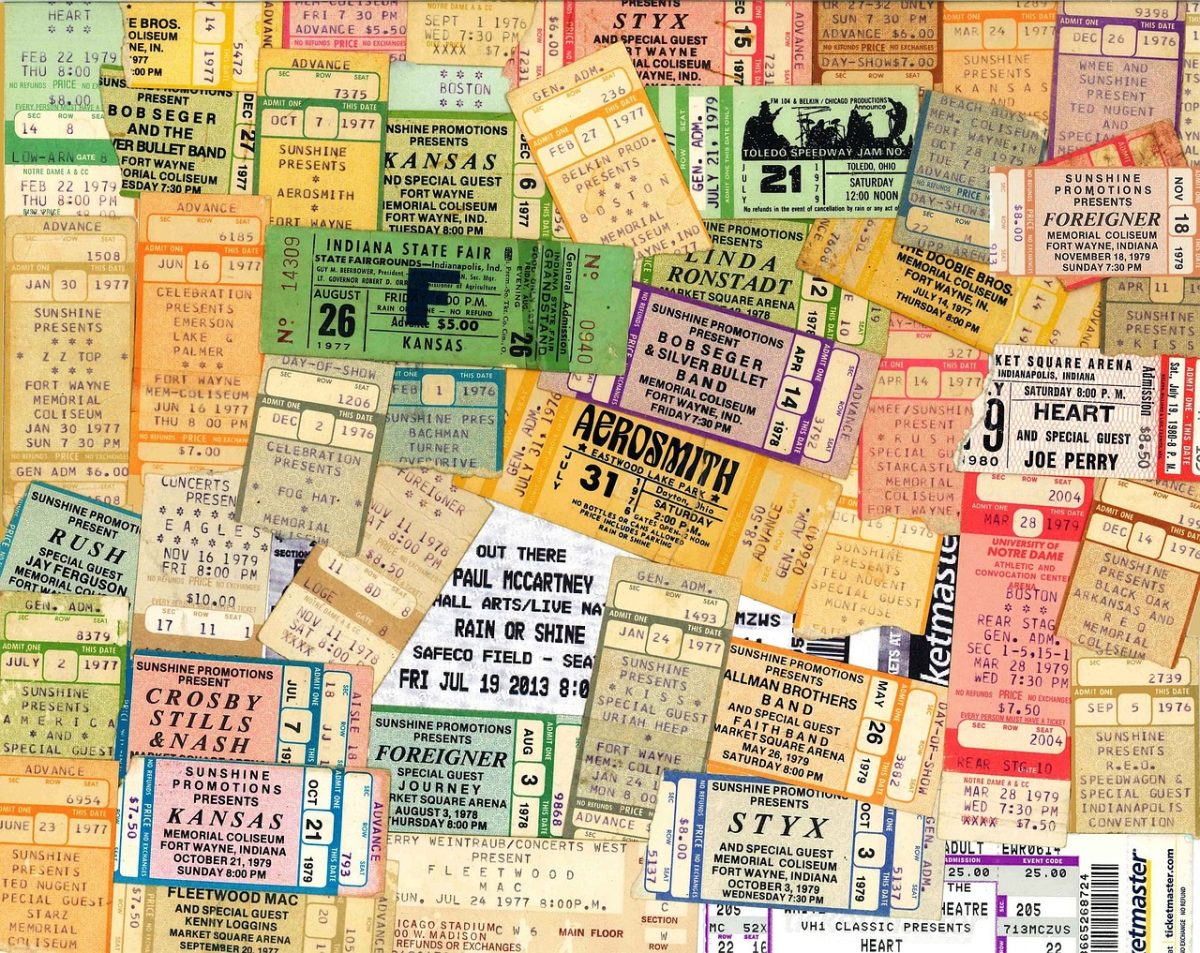In 2017, when pop idol Taylor Swift embarked on her “Reputation” tour, the average price of a resale ticket was $157. Less than a decade later, the average resale ticket for her career-encompassing “The Eras Tour” was $3,801, a 2000% price increase. While that tour was a larger production, it is hard to argue that such a radical price increase is justifiable. And Swift’s price, while reflecting her place as pop culture’s current megastar, was not an outlier.
Fans of Beyonce spent $1,800 on average for “The Renaissance Tour” Bruce Springsteen fans were alarmed to see tickets selling for $5,000. Fans of Olivia Rodrigo, many of them young, felt slighted by prices reaching $900, despite an initial statement claiming they would not exceed $200. These are some of the hottest acts in entertainment, and their skyhigh asking prices do not reflect industry standards.
What they do reflect is an alarming trend in live-music overall. Concert prices outpace the already steep inflation affecting most goods and services. Even before the pandemic-induced cost recuperation, these prices had quadrupled throughout the 2000’s. The reasons behind these increases are varied and intertwined, but can mostly be traced back to just one dominant company: Ticketmaster.
In 2010, Live Nation, a concert venue operator, merged with Ticketmaster, a ticket selling company, to form Live Nation Entertainment. 14 years later, that singular company controls 70% of all United States ticket sales and is responsible for many aspects of the current live-music landscape. This is the same company that was recently brought before Congress for their famously disastrous sale of Taylor Swift’s Eras tour tickets. In fact, Live Nation has frequently fallen under scrutiny. They have long been accused of illegally maintaining a monopoly through harming competitors, as well as price-gouging.
In 2022, these accusations were formalized in a Department of Justice lawsuit, backed by 30 state and district attorney generals. In the lawsuit, The Department of Justice asserts that Ticketmaster held onto industry power through exclusive ticketing contracts and dominating other aspects of the business like venue management. The impact of this market dominance is clear: Instead of having to earn customers, Ticketmaster has built in users who are forced, like many artists, to reluctantly use their service regardless of heightened asking prices.
Under Live Nation’s dominance, it has also become industry standard to tag on numerous “fees” to a ticket’s final price. These extra charges include “service fees,” covering the infrastructure costs of selling tickets online, “order processing fees,” and a “facility charge,” covering the cost of hosting the event in the venue. After fees, the ticket price rises by an average of 27% with some fees even reaching 78% of the original ticket price. While it might be assumed that the often hundreds of dollars charged for a regular ticket goes toward covering these costs, that is not the case. Unlike film tickets, where profit is divided among the parties involved, the entirety of the original ticket’s cost goes back to the artist. Therefore, Ticketmaster, other sellers and other parties involved in putting on concerts must invent other ways to profit off the sale.
Increasing ticket prices can also be traced back to the development of two new ticket-selling methods: dynamic pricing and reselling. Since 2011, Ticketmaster has practiced “dynamic pricing,” that is, increasing or decreasing ticket prices based on customer demand. This means that the same ticket can have a different cost depending on the day or even hour. The result has been a number of premium tickets fluctuating to ridiculous prices. Contrary to excess fees, whether or not to utilize dynamic pricing is left in the hands of the artist, and most directly benefits them.
Even more damaging has been the flourishing resale market that dynamic pricing was initially implemented to prevent. Under this system, scalpers will utilize fake users to automatically purchase large sums of tickets immediately upon release, thus creating scarcity for the remaining tickets and inflating the resale price.. The frequency of ticket resale has increased dramatically in recent years. In 2008, approximately 4% of tickets were resold. Now, 20% of tickets are available for resale within 24 hours.
For their part, Ticketmaster holds back the majority of tickets exclusively for the resale market or other special promotions like fan-clubs. In 2019, they even admitted to helping a dozen artists scalp their own tickets to unsuspecting fans. The overall result of this system is shows rarely sell out: instead, a small number of seats remain available, held hostage by ticket-scalpers and only available at inflated prices, waiting for a fan desperate enough to pay them.
For years, Ticketmaster has clashed with fans, artists, and the government, but have frequently come out unscathed. This seemingly impenetrable and long-standing market dominance has left many hopeless. Slowly, however, progress is being made. In 2023, President Biden called for a crackdown on hidden fees. That same year, country star Zach Bryant released an album cheekily titled “All My Homies Hate Ticketmaster.” Not to mention The Department of Justice’s widely supported antitrust lawsuit looming over the ticketing-giant. In the meantime, live music continues to rake in money, despite exorbitant prices. For concert-goers the experience remains priceless: making memories, hearing the heart-pounding music, basking in the bright stadium lights.


